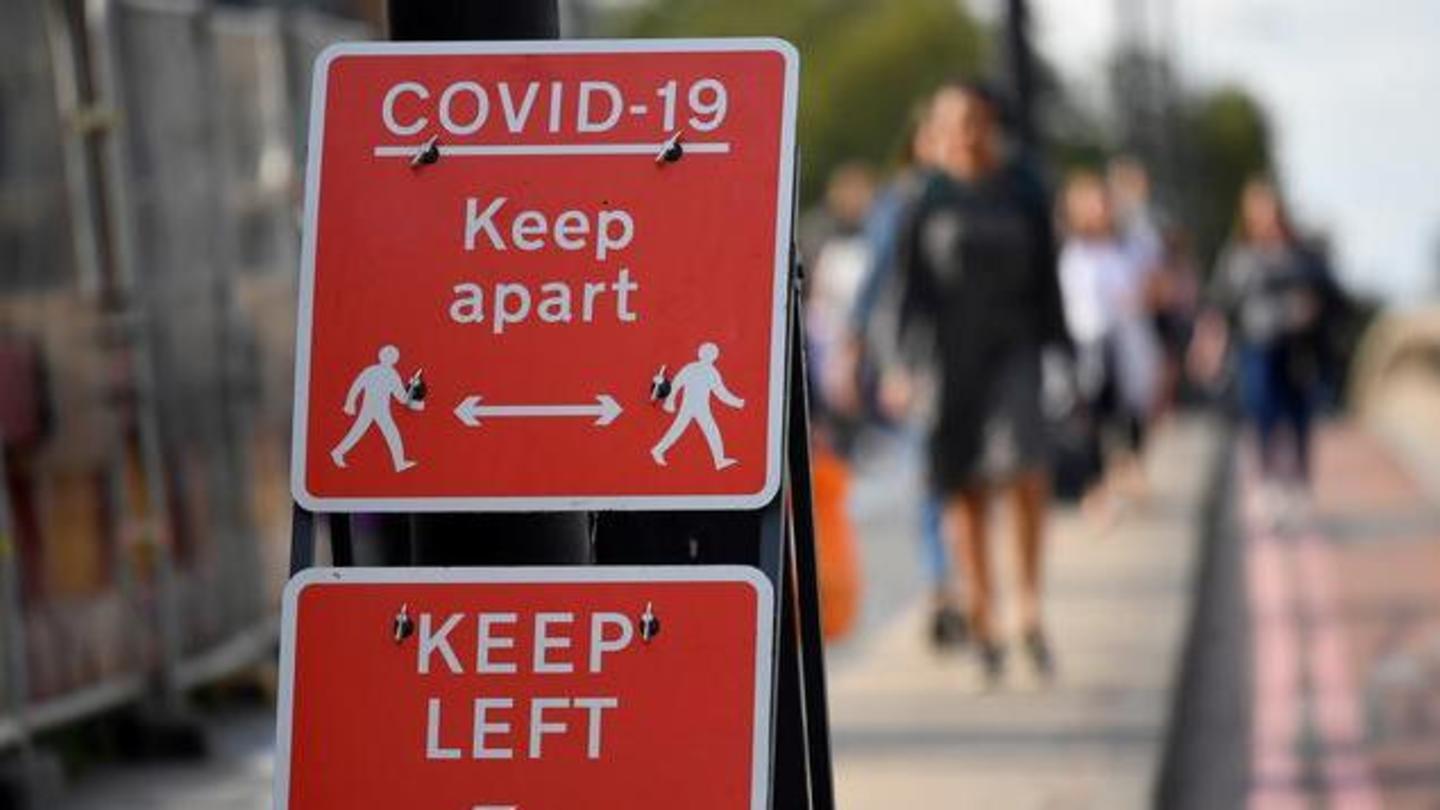
England enters second lockdown as coronavirus outbreak worsens
What's the story
A second coronavirus lockdown has come into force in England, forcing people indoors and shutting down non-essential shops, pubs, and gyms.
The new lockdown, which will last four weeks, comes as the number of COVID-19 infections and deaths has risen in the United Kingdom.
People who violate the new rules will also face stiff fines.
Here are more details.
Details
Second lockdown safest path for our country: Boris Johnson
The new lockdown came into force at midnight after it was backed by MPs on Wednesday.
Prime Minister Boris Johnson said the second lockdown was "not something any of us wanted to do." He added that the restrictions are the "best and safest path for our country."
The lockdown will "expire automatically" on December 2, Johnson has said.
Information
MPs to vote on next steps after lockdown ends
The new lockdown replaces a previous set of rules wherein England followed three tiers of regional restrictions. MPs are set to vote on the next steps required to stem the spread of the virus before the four-week lockdown ends on December 2.
Restrictions
What is restricted under the second lockdown?
Households are banned from mixing indoors or in private gardens, unless in a support bubble. People should stay at home except for education or work.
Unlike the first lockdown, schools, universities, and nurseries will remain open. People can meet one other person in outdoor public places like parks or beaches.
All non-essential retailers, leisure/entertainment venues must shut. Pubs/restaurants will remain closed except for takeaways.
Fine
Most 'egregious' lockdown breaches to face stiff fines
Chairperson of the National Police Chiefs Council, Martin Hewitt, has warned that the most "egregious" lockdown breaches would face stiff fines.
Hewitt said, "Every one of us has a responsibility to understand what the regulations are and abide by those regulations," adding that people who flouted them would be "breaking the law and endangering people's lives."
Vulnerable groups
Vulnerable groups asked to stay indoors
Further, people who are clinically vulnerable have been strongly advised against going to work outside their homes from Thursday.
The Department of Health has advised vulnerable groups to only go out for exercise and to attend health appointments.
People with stage-five chronic kidney disease, those undergoing dialysis, and adults with Down's syndrome are now included among vulnerable groups who must follow this advice.
Information
How bad is the outbreak in the UK?
On Wednesday, the UK reported 492 fresh COVID-19 fatalities (the highest number of deaths in one day since May 19) and 25,177 new cases. Since the beginning of the pandemic, the UK has reported over 1.1 million cases, including nearly 48,000 deaths.
Economy
Calls for economic support during lockdown grow
Meanwhile, the Confederation of British Industry called for an urgent extension of the government's furlough scheme until spring to prevent job losses. The scheme pays 80% of workers' wages.
Chancellor Rishi Sunak will make a statement in the House of Commons detailing economic support for businesses and jobs during the lockdown.
The Bank of England will pump an extra £150bn into the economy.